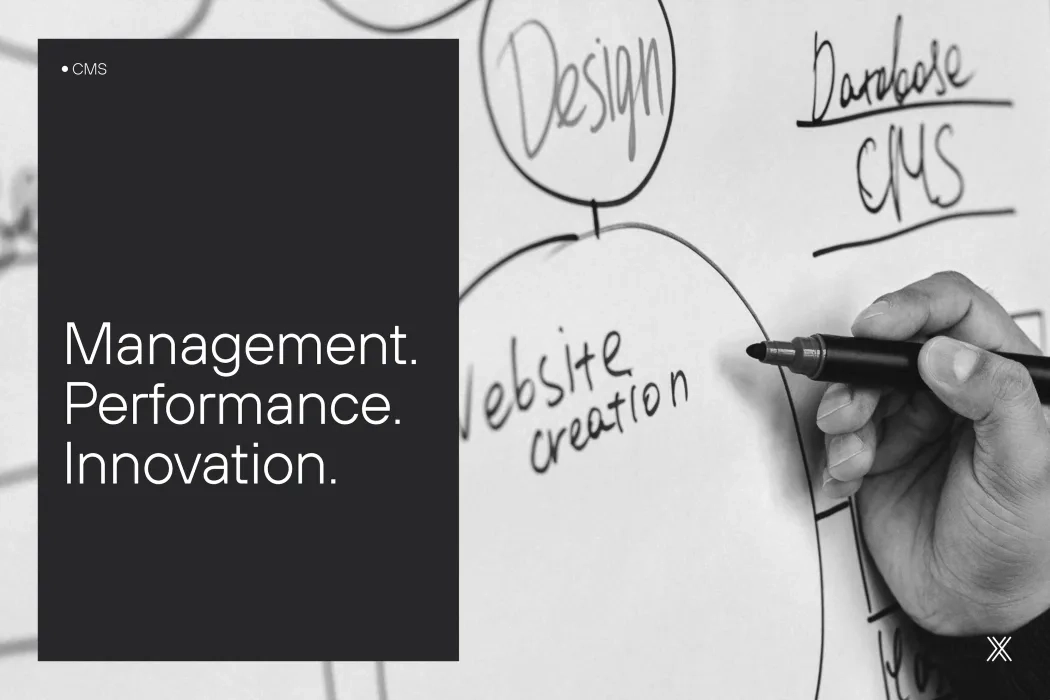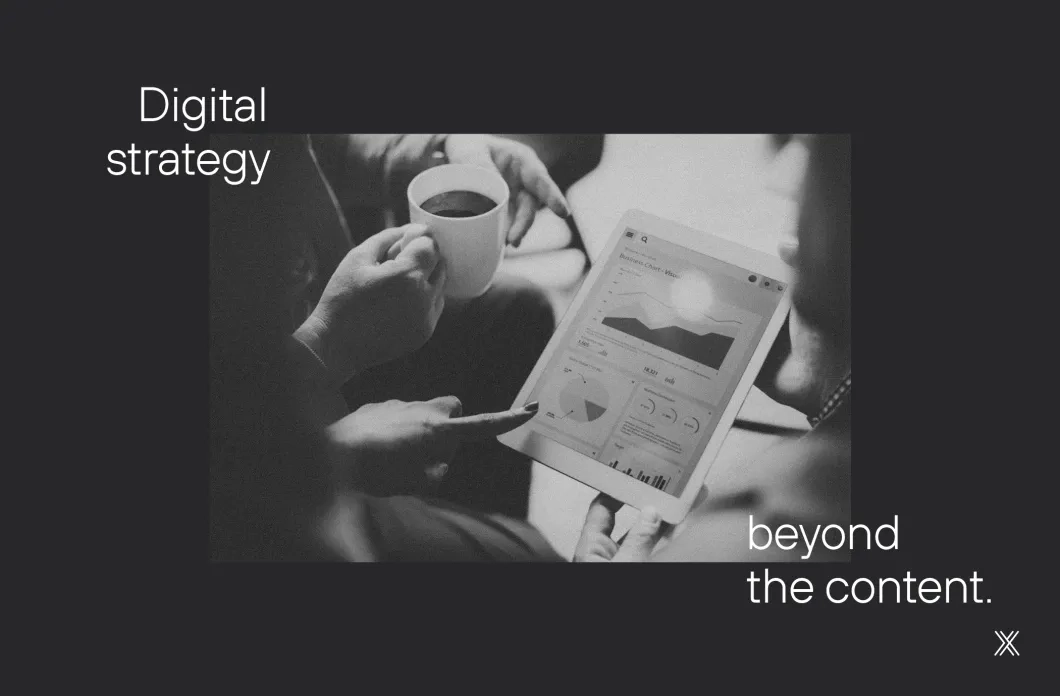Enterprise CMS: performance, scalability and SEO for large brands
July 31, 2025
Imagine publishing a multi-language or multi-brand website quickly and easily, or posting content across multiple channels with just one click. For large companies, or those growing fast, this sounds like a dream, right? But with the right tool, it can become a reality. Adopting a good Enterprise CMS can solve most of these and other technical and operational challenges.
Digital volatility demands a strong and consistent online presence (across multiple channels). Being seen and remembered is synonymous with market authority; therefore, being present is a strategic decision. In this sense, choosing an Enterprise CMS must be done with rigor and planning. After all, developing or growing companies deal with complex operations and need a structured, secure, scalable, and data-driven digital operation.
To help you in this complex decision-making process, we’ve prepared a complete and detailed article where you will discover:
- What an Enterprise CMS is.
- Why does it differ from a traditional CMS?
- The real benefits for your business growth;
- The best alternatives in the market.
- And how to choose the ideal solution.
Clear up your doubts about Enterprise CMS with an expert
What is a CMS?
In short, a CMS (Content Management System) is a software application that enables you to create, edit, organize, and publish information in digital environments or channels (such as websites, blogs, portals, and intranets) without requiring advanced programming skills. It provides a user-friendly interface so that any user can:
- Write and format texts;
- Insert images, videos, and files;
- Manage pages, menus, and modules;
- Control publications quickly and centrally.
Examples of popular CMS platforms: Drupal, WordPress, Joomla, and Wix.
Each CMS has unique features and is developed to meet different purposes, from e-commerce and personal blogs to corporate portals and collaborative networks. Therefore, choosing the ideal platform depends directly on the nature of your project. Understanding your needs, goals, and the type of experience you want to provide to the user is essential for making an informed and efficient decision.
Enterprise CMS
Start thinking of the Enterprise CMS as the brain of your digital operation: it centralizes communication, accelerates marketing, and ensures performance and governance. Now let’s go deeper.
Enterprise CMS is the evolved version of the traditional tool, designed to meet corporate demands, with a focus on scalability, security, personalization, and integration with other company systems. It is a more complex system that goes beyond the functionalities of common CMSs. Below, we highlight the main differences and advantages that justify its adoption by organizations.
Exclusive features of an Enterprise CMS
While conventional CMSs are efficient for blogs and small websites, an Enterprise CMS delivers a robust set of strategic resources for large-scale digital projects. Check out the differentials worth highlighting:
Advanced user governance and permissions
- Granular access control: allows defining roles, permissions, and workflows tailored to each department or employee.
- Multi-user and activity audit: enables tracking actions across environments with multiple teams or business units.
Integration with corporate systems
- APIs and connectors: facilitate integration with ERP, CRM, marketing automation platforms, payment systems, and other corporate software.
- Process automation: automated workflows for approval, publishing, and archiving scalable content.
Support for multi-site, multi-language, and omnichannel
- Centralized management of multiple sites/domains: simultaneous publishing across different brand channels, markets, and regions.
- Integrated translation and localization: ideal for global businesses operating in multiple languages.
Read also: Consistency across all channels with the omnichannel experience
Security and compliance
- Advanced security features: access control, automatic backups, encryption, multi-factor authentication, and audit logs.
- Compliance with regulations (LGPD/GDPR): consent and privacy management by default.
These features minimize risks of leaks, external threats, attacks such as DDoS, exploits in malicious plugins, and make regulatory compliance easier.
Performance, scalability, and personalization
- High-traffic capability: scalable structures support large volumes of simultaneous access without performance loss.
- Dynamic personalization: content segmentation by persona, sales funnel stage, location, or user behavior.
- Optimization for Core Web Vitals and technical SEO: friendly URLs, customizable meta tags, resource compression, and integration with analysis and monitoring tools.
Flexibility and modularity
- Headless and hybrid architecture: allows a clear separation between the content backend and the digital experience frontend (web, app, devices).
- Extensibility: installation of modules, plugins, or custom integrations without structural limitations.
Below, we present an objective summary of the main differences between a common CMS and an Enterprise CMS.
| Aspect | Common CMS | Enterprise CMS |
|---|---|---|
| Users | Basic permissions | Granular control and audit |
| Integrations | Limited or manual | Robust APIs and corporate connectors |
| Multi-site/language | Limited support | Centralized management and integrated translation |
| Security | Basic protection | Advanced features and compliance (LGPD/GDPR) |
| Performance | Low scalability | High performance and audience personalization |
| Flexibility | Fixed structure | Modular, headless, and extensible |
How an Enterprise CMS enhances digital strategy
Incorporating an Enterprise CMS is an agile move that directly impacts the performance of marketing, IT, and business teams. This type of platform drastically reduces content management and publishing time, promoting more autonomy for communication teams, who can work quickly and safely without depending on technical teams for every adjustment.
Another key point is operational stability, even in moments of high traffic or intense campaigns, it guarantees the continuity of the digital experience without crashes or downtime. In addition to native compliance features, which minimize risks and strengthen reputation, data centralization and integration enable more precise analysis and intelligence-driven decisions.
The result is an efficient digital ecosystem, prepared to scale and, above all, aligned with the demands of performance, personalization, and organic search positioning.
Talk to an expert and enhance your digital strategy
Enterprise CMS and SEO: how technical performance impacts your ranking
The rule is clear: when it comes to competitive digital presence, ranking well in traditional and AI-powered search engines is essential. To achieve and maintain a good ranking, it’s not enough to just produce quality content; you need a strong site infrastructure, and that’s exactly where Enterprise CMS shines.
Major brands like Tesla, The Economist, and Harvard University use Enterprise CMS platforms precisely because of the technical robustness these systems provide for scaling digital presence with performance, security, and top-level SEO.
Next, we’ll discuss the key technical factors that make Enterprise CMS a solid foundation for consistent and long-lasting SEO strategies.
Loading speed (web performance)
Google measures in milliseconds, so do users. Enterprise CMS platforms are built for performance: they use integrated CDNs, advanced caching, lazy loading for images, code minification, and resource compression to ensure fast loading, even in complex, high-traffic environments. This performance improves user experience and influences Core Web Vitals, essential criteria for organic ranking.
SEO-optimized architecture
Unlike common CMSs, enterprise versions come ready to structure URLs, meta tags, heading tags, and structured data, essential elements for Google to understand and value content.
Redirect and canonical control
Large volumes of content bring risks such as duplication and outdated URLs. Enterprise CMSs prevent these issues with automatic redirects, canonical URLs, and SEO audits, solutions adopted by government and educational platforms.
Intelligently managed content
Modern SEO requires organized and personalized content. Enterprise CMS platforms make this easier with taxonomies, tags, automation, and profile-based personalization, improving the user experience and reinforcing relevance as perceived by Google.

What are the best enterprise CMSs in 2025?
There are several enterprise CMS options in the market, each with its features, functionalities, and levels of complexity. The choice of the ideal platform depends on your business model, but some names stand out among companies seeking performance and flexibility.
- Drupal: A highly flexible open-source CMS with modular and scalable architecture. Ideal for custom, secure projects involving multiple integrations.
- Adobe Experience Manager: Platform with advanced content management, marketing automation, personalization, and omnichannel experience features. Widely adopted by large corporations.
- OpenText: Solution focused on Enterprise Content Management (ECM), with strong integration for document workflows, compliance, and digital asset management.
- Joomla: Also open-source, known for its versatility and native support for multilingual sites, with a structure suitable for corporate portals.
- Contentful: A headless platform with powerful APIs, ideal for distributing customized content across multiple devices and channels.
When to migrate to an Enterprise CMS?
Difficulty updating content across multiple sites or channels, poor technical performance, SEO problems, lack of control over permissions, or complex integrations with the rest of the digital stack are red flags. If your company is already feeling these effects, it’s clear that the time to evolve has come.
Continuing to operate with generic platforms or rigid solutions puts your entire digital strategy at risk. By implementing an Enterprise CMS, marketing and IT stop working in conflict and begin collaborating strategically. This ensures smoother processes, greater control over the digital ecosystem, and real freedom to innovate.
I want to migrate to an Enterprise CMS
Growth with scale and control
It’s time to orchestrate your brand’s digital transformation with governance, performance, and flexibility. For that, it’s essential to choose a modern corporate solution capable of meeting the most diverse market and operational demands.
At Dexa, we work with strategic and functional platforms that empower brands to grow with agility, security, and intelligence. If you seek operational efficiency, autonomy, and great results, it’s time to discover the ideal solution.
Want to understand how an Enterprise CMS can accelerate your results? Contact us!
